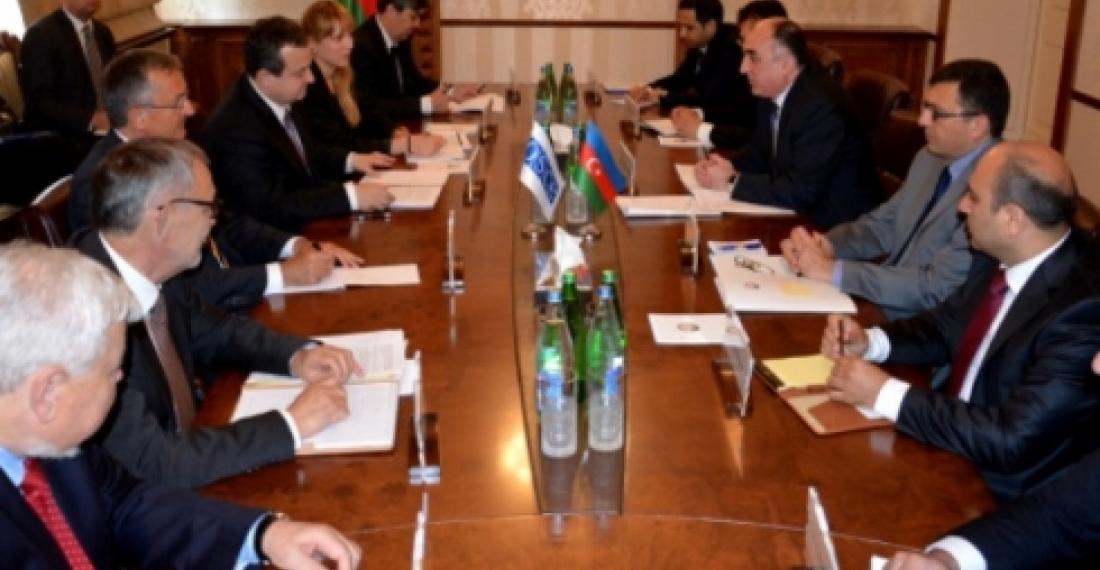During his visit to Baku on 1 June, OSCE Chairperson-in-Office and Serbia's Foreign Minister Ivica Dačić expressed concern about the unprecedented number of service personnel and civilians reported killed and wounded in the first four months of the year in the Karabakh conflict zone and stressed the need for all involved to honour the ceasefire agreement. "There is no alternative to a peaceful settlement," he said.
A statement by the OSCE said that Dacic told President Ilham Aliev and Foreign Minister Elmar Mammadyarov during his meetings with them in Baku that "Serbia's own experience confirms that it is only through dialogue that a sustainable, peaceful solution can be found, one which would put the region on the path of co-operation, the only way forward in our increasingly interconnected international community."
Dačić emphasized his full support for the efforts of the Co-chairs of the OSCE Minsk Group and his Personal Representative, Ambassador Andrzej Kaspryzk, directed towards promoting dialogue between the parties.
In an ambiguous reference to current concerns within the OSCE at the recent clampdown on human rights activists and journalists the OSCE statement said that Dacic stressed that, besides offering tools for advancing democratic reforms in its participating States, the OSCE is a good platform for joining forces in addressing transnational threats. "The Organization stands ready to continue to work with Azerbaijan to help boost the country's capacities to combat such threats," Dačić said, "as well as to pursue its domestic reform agenda."
Dačić also visited the premises of the OSCE Project Co-ordinator's in Baku, where he discussed with mission members ongoing programmatic activity.
Dacici is now in Tbilisi and he will also visit Armenia tomorrow at the end of his tour of the region.
source: commonspace.eu with osce.org
photo: The Chairman in Office of the OSCE in a meeting with the Foreign Minister of Azerbaijan in Baku on 1 June 2015 (picture courtesy of the Serbian Foreign Ministry)







